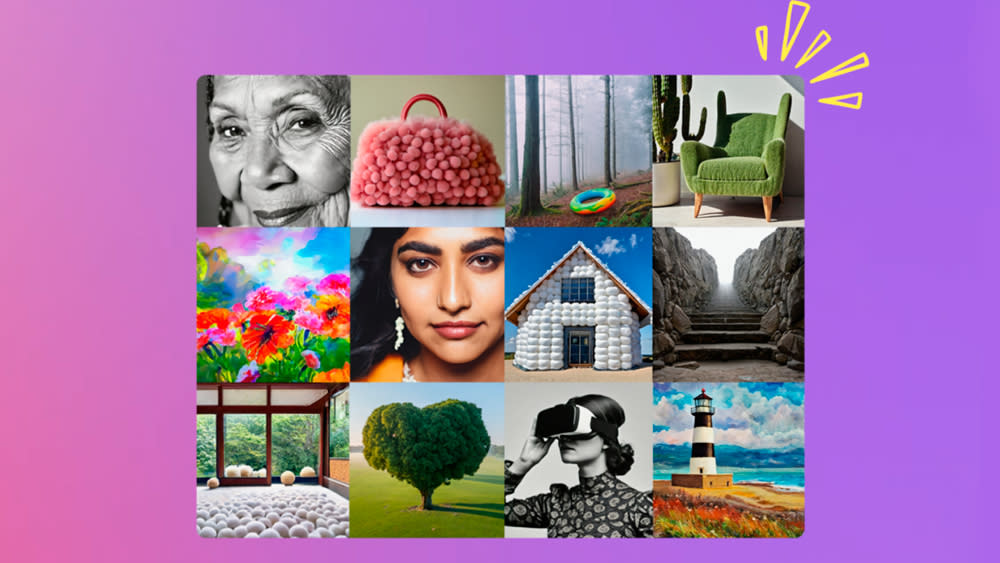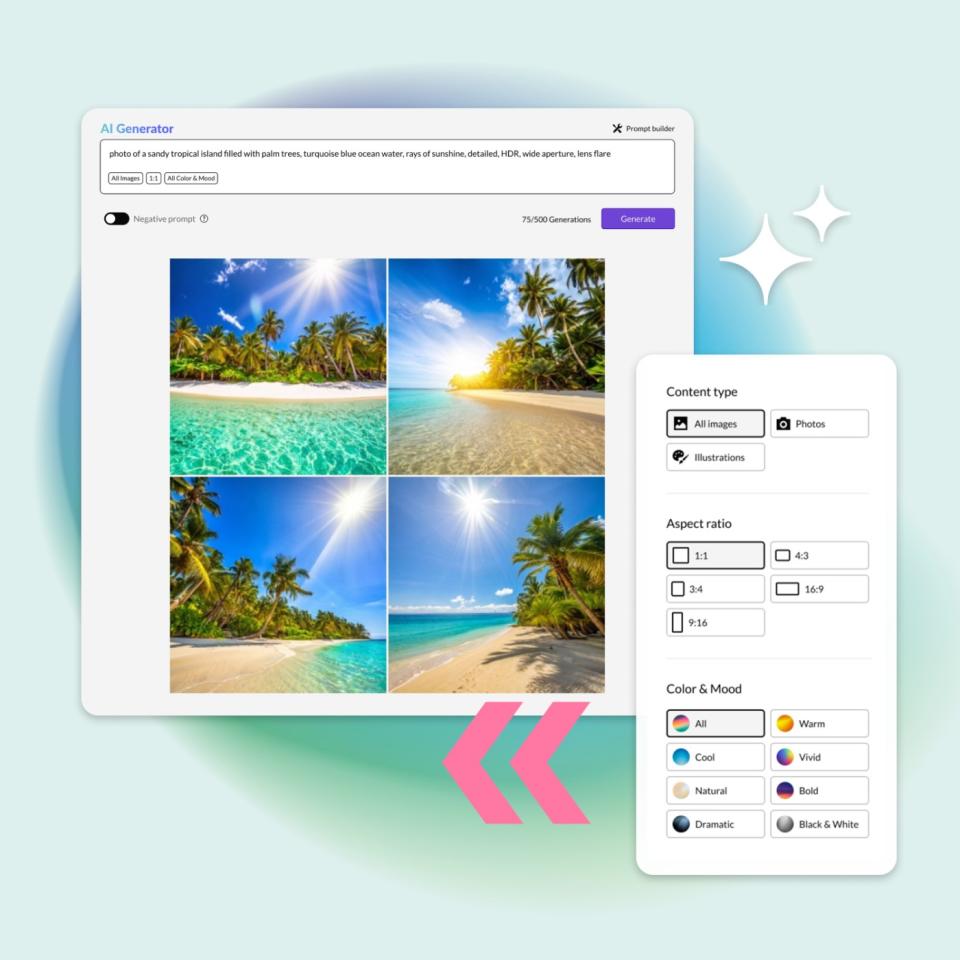Getty's new image generator could make AI art truly mainstream

AI image generation has advanced at lightning speed over the past year. Only 12 months ago we were gasping and laughing (mostly the latter) at the nightmare images produced by early incarnations of Midjourney and Stable Diffusion.
Their models have advanced massively since then, and they remain among the best AI image generators available. But they also remain on the most questionable side of generative AI, attracting criticism for scraping online images without permission to train their algorithms. More mainstream players are emerging, claiming to have a more ethical approach. After the creative software giant Adobe jointed the fray with Firefly, now Getty Images, one of the best stock photo libraries, has announced it's launching its own AI image generator.
Generative AI by Getty Images might not have the catchy name of Midjourney or Stable Diffusion, but, like Adobe with Firefly, the photography giant claims that the content it produces will be safe to use because its AI model was trained only on images from Getty's own library of licensed photos. That allows it to grant users have perpetual, unlimited worldwide rights and "uncapped" copyright indemnification for the images they generate.
The tool was developed with the GPU giant Nvidia's Edify model from its generative AI model library Picasso. It will limit the types of images that can be generated, preventing the use of text prompts using the names of real people. Getty also stresses that the AI images created will not find their way into the Getty Images and iStock libraries.
As for royalties, Getty says it will pay creators if it uses their work to train current or future versions of the model and will share revenue generated via a "pro rata share in respect of every file" and a share based on traditional licensing revenue. What I'm not yet sure about is whether contributors to Getty will be offered the chance to opt out – something that's been controversial among Adobe Stock contributors with Firefly, who had to wait some time to learn about Adobe's plans for a "bonus compensation plan".

In a statement about the announcement, Getty Images chief product officer Grant Farhall said: “We’ve listened to customers about the swift growth of generative AI — and have heard both excitement and hesitation — and tried to be intentional around how we developed our own tool."
Another player in the increasingly crowded AI image generation space may not seem like a big deal, but Getty still has huge weight. It's has a relatively small creative library but its large editorial library means it's still a popular photo library among mainstream medias, so it's likely to play a role in the normalisation of AI generated imagery.
The move is also likely to be horrify some traditional photographers. Getty has been an opponent of existing AI art generators. It banned AI images from its library 12 months ago and suing Stable Diffusion developer Stability AI for copyright infringement. But its own entry into the space seemed only a matter of time. Shutterstock, a major rival, has already entered the game, and Getty has a massive source of material to train an AI model.
It says that the process will be similar to how customers currently license content assets from its library, which may offer reassurance to corporate users. I haven't had a chance to test the tool yet to compare how it performs against the other generators available, but Getty says it has made ease of use has been a priority.
Users will be able to write their own prompt or use a prompt builder to help them. Later in the year, users will be able to add their own training data in order to generate images with a brand style.
Users will be able to access Generative AI by Getty Images via the usual Getty Images website, but pricing will be separate from standard subscriptions and will be based on prompt volume. For more on how to use text-based image generators, see our roundup of AI art tutorials.

